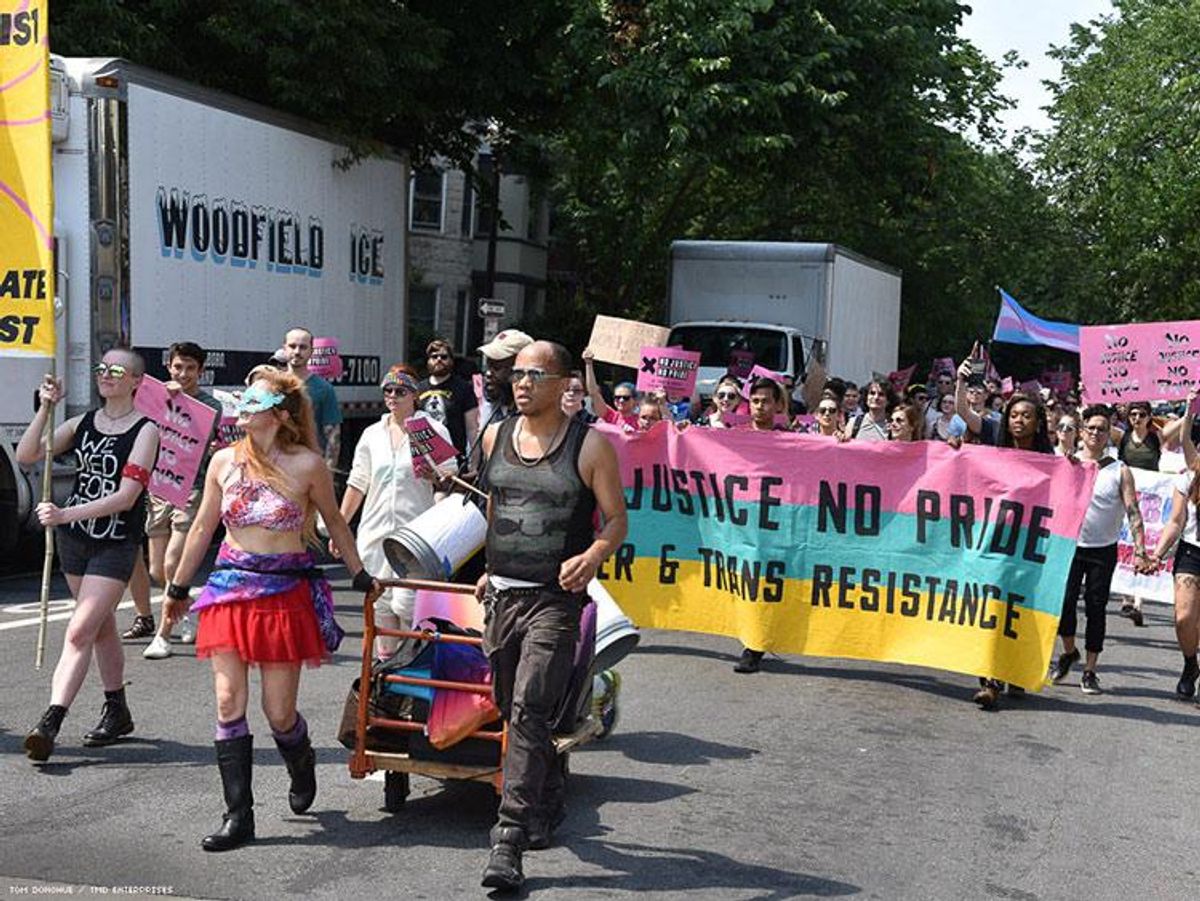Pride
Anti-Corporate Protesters Plan Action for NYC March

No Justice No Pride at its Washington protest
Organizers say Pride events are too corporate and insufficiently inclusive.
Trudy Ring
Trudy Ring is The Advocate’s senior politics editor and copy chief. She has been a reporter and editor for daily newspapers and LGBTQ+ weeklies/monthlies, trade magazines, and reference books. She is a political junkie who thinks even the wonkiest details are fascinating, and she always loves to see political candidates who are groundbreaking in some way. She enjoys writing about other topics as well, including religion (she’s interested in what people believe and why), literature, theater, and film. Trudy is a proud “old movie weirdo” and loves the Hollywood films of the 1930s and ’40s above all others. Other interests include classic rock music (Bruce Springsteen rules!) and history. Oh, and she was a Jeopardy! contestant back in 1998 and won two games. Not up there with Amy Schneider, but Trudy still takes pride in this achievement.
Trudy Ring is The Advocate’s senior politics editor and copy chief. She has been a reporter and editor for daily newspapers and LGBTQ+ weeklies/monthlies, trade magazines, and reference books. She is a political junkie who thinks even the wonkiest details are fascinating, and she always loves to see political candidates who are groundbreaking in some way. She enjoys writing about other topics as well, including religion (she’s interested in what people believe and why), literature, theater, and film. Trudy is a proud “old movie weirdo” and loves the Hollywood films of the 1930s and ’40s above all others. Other interests include classic rock music (Bruce Springsteen rules!) and history. Oh, and she was a Jeopardy! contestant back in 1998 and won two games. Not up there with Amy Schneider, but Trudy still takes pride in this achievement.
June 19 2017 10:21 AM EST
True
June 19 2017 12:36 PM EST
trudestress

















































































Fans thirsting over Chris Colfer's sexy new muscles for Coachella